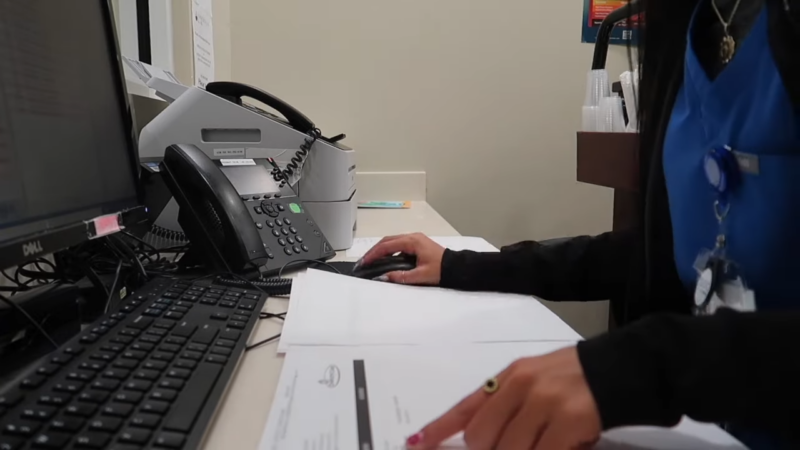Mental health care is undergoing a revolutionary transformation. At the forefront of this change are Psychiatric-Mental Health Nurse Practitioners (PMHNPs), professionals who are redefining what it means to provide comprehensive mental health care.
If you are already working in this field, getting a degree for PMHNP can be a great step forward. The great solution is that you can complete a master degree online. To learn more about this option, check out this https://onlinedegrees.rockhurst.edu/programs/online-msn-pmhnp.
What is the Role in Mental Health Care?
Mental health care is the specialization of Psychiatric-Mental Health Nurse Practitioners, who are advanced practice registered nurses. They hold advanced degrees and specialized training that qualify them to diagnose, treat, and prescribe medications for various mental health disorders. Psychotherapy, counseling, and education are also provided by them to their patients and families.
Recognizing the nuanced challenges of high-functioning mental health disorders, they navigate the hidden struggles and silent battles, addressing the intricate interplay of physical health, mental well-being, and environmental factors that contribute to these complex issues. Their role extends beyond traditional psychiatric care, placing a profound focus on the patient’s holistic experience
Innovation in Treatments
The approach is not just about prescribing medication, but about integrating various therapeutic modalities to enhance patient care.
Another important practice is the integration of universal health approaches. PMHNPs often incorporate nutrition, exercise, and mindfulness practices into treatment plans, acknowledging the profound impact of physical health on mental well-being.
They also play a crucial role in early intervention and preventive care. By working closely with primary care providers, they help in identifying early signs of mental health issues, ensuring timely intervention.
Moreover, Pharmacogenomics, the study of how genes affect a person’s response to drugs, is a cutting-edge tool in psychiatry. It helps in selecting medications that are more likely to be effective and have fewer side effects, based on the individual’s genetic makeup.
Promoting mental health education in various healthcare and community contexts is the main goal of PMHNPs. By educating the public about mental health issues, they challenge stereotypes and encourage people to access support.
Different formats such as workshops, seminars, and teamwork with other healthcare providers are used by them to achieve this. In addition, they advocate for better policies and practices to improve mental health outcomes.
The role of PMHNPs in research and evidence-based practice development also represents a significant stride forward. Their clinical insights and experiences are valuable in shaping new treatment modalities and improving existing ones, ensuring that mental health care continues to evolve and become more effective.
Integrating Technology and Mental Health
Telepsychiatry, a significant technological advancement, allows PMHNPs to offer remote consultations. This method of care is particularly beneficial for patients in underserved or rural areas, where access to mental health professionals can be limited.
Digital tools, including mobile health apps, are another area where PMHNPs are making strides. These apps can track mood changes, medication adherence, and sleep patterns, providing valuable data that can be used to tailor treatment plans.
Furthermore, PMHNPs are leveraging online platforms for psychoeducational purposes. They use these platforms to provide resources, support groups, and workshops, extending care beyond traditional therapy sessions.
Wearable technology also finds its application in mental health care. Devices that monitor physiological responses like heart rate and skin conductance are being used to detect anxiety and stress levels, giving PMHNPs real-time data to assess and adjust treatments.
Increased Focus on a Patient
Emphasizing the individual’s unique experiences, needs, and preferences, PMHNPs tailor treatments to each patient, moving away from a one-size-fits-all model. They actively involve patients in decision-making processes, ensuring that treatment plans align with the patient’s values and lifestyle.
Collaboration is a key aspect of this patient-centered approach. PMHNPs often work closely with patients to set realistic, achievable goals, fostering a sense of ownership and empowerment in their mental health journey.
Moreover, PMHNPs are known for their empathetic and compassionate care, which is fundamental in building trust and rapport with patients. They spend time listening to patients’ concerns, fears, and hopes, creating a safe and supportive environment conducive to healing and growth.
PMHNPs in Integrated Healthcare Settings
Their unique skill set allows them to bridge the gap between mental and physical health, offering comprehensive care that addresses the whole patient. In these settings, PMHNPs collaborate closely with other healthcare professionals, ensuring a well-rounded approach to treatment.
Collaboration with Other Health Professionals
In integrated healthcare, PMHNPs work alongside doctors, nurses, social workers, and therapists. This is crucial for effective treatment planning and implementation. PMHNPs contribute their expertise in mental health to develop care plans that consider both psychological and physical aspects of a patient’s condition.
The ability to prescribe medication and provide psychotherapy allows them to be a linchpin in the collaborative care model.
Specialization in Mental Health Nursing
Gaining experience in the field of mental health nursing is crucial, as it provides practical insights and a deeper understanding of patient care in this specialty.
The next significant step is pursuing a Master of Science in Nursing (MSN) with a focus on mental health. It is essential for those aiming to become specialists in this field. It not only deepens theoretical knowledge but also enhances clinical skills specifically tailored to mental health care.
An online MSN program offers several advantages. It provides flexibility, allowing nurses to continue working while advancing their education. The flexibility is particularly beneficial for those balancing professional responsibilities with personal commitments.
Online learning environments also offer access to a diverse range of resources and the opportunity to connect with a wider community of mental health professionals.
Last Words
MHNPs integrate innovative treatments, including pharmacogenomics, telepsychiatry, and digital tools, to tailor care to each patient’s unique needs. They prioritize collaboration, working alongside other healthcare professionals, and place a strong emphasis on patient-centered care, fostering trust and empowerment.
Choosing a career path in mental health nursing, including pursuing a Master of Science in Nursing (MSN) online, opens up opportunities to contribute to this transformative field. The future of mental health care is in capable hands, as PMHNPs continue to drive progress and provide compassionate, comprehensive care to those in need.

















